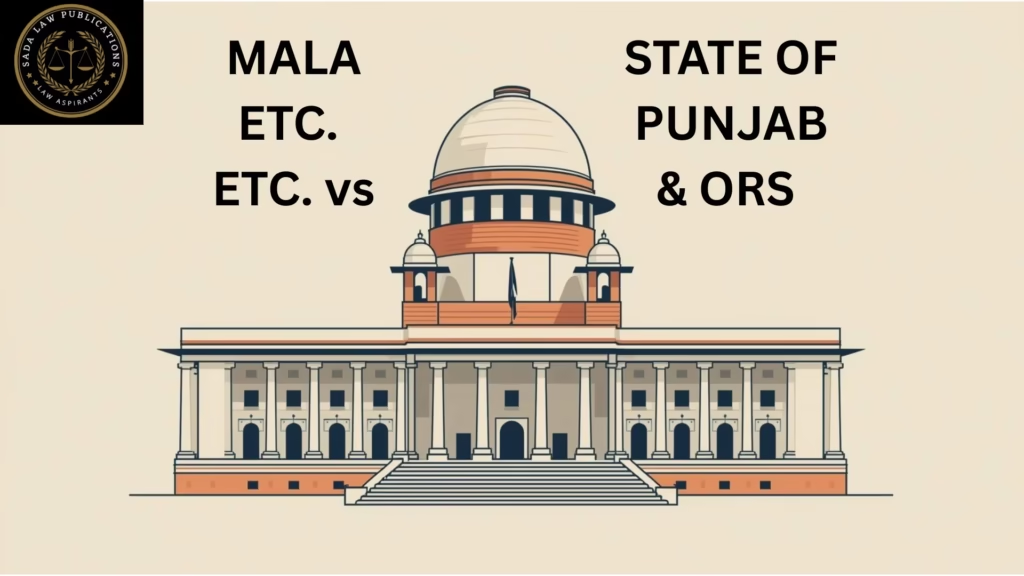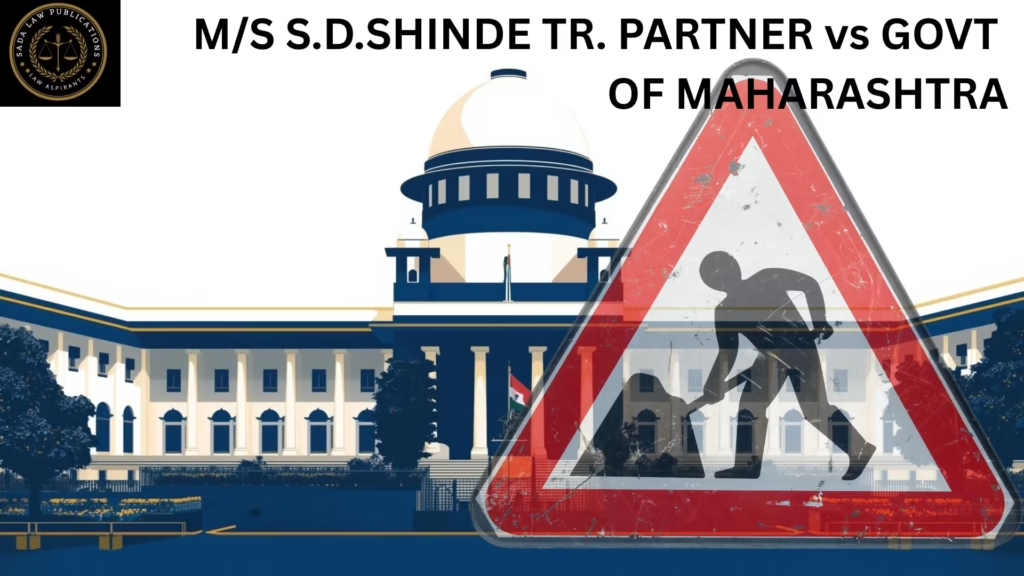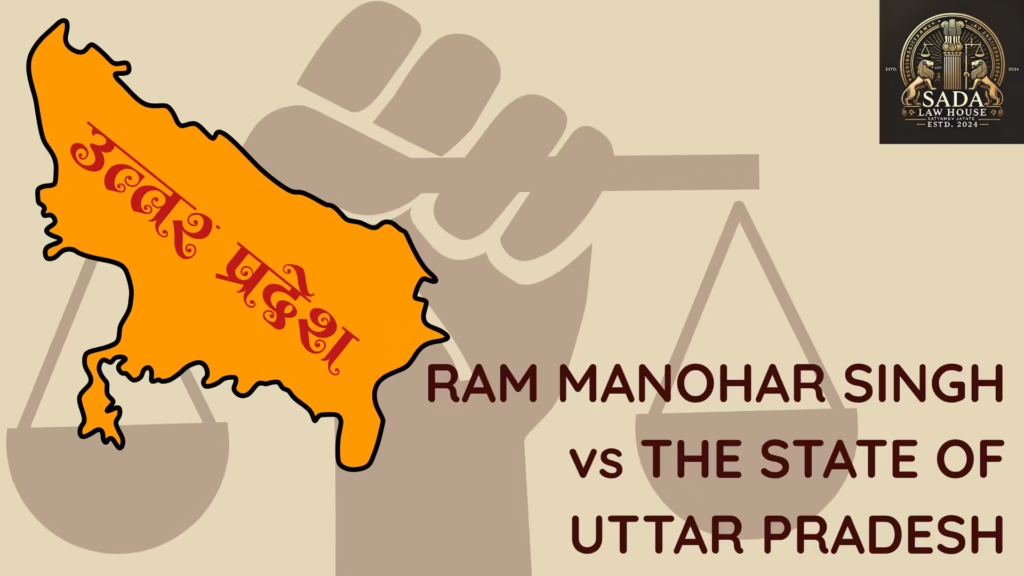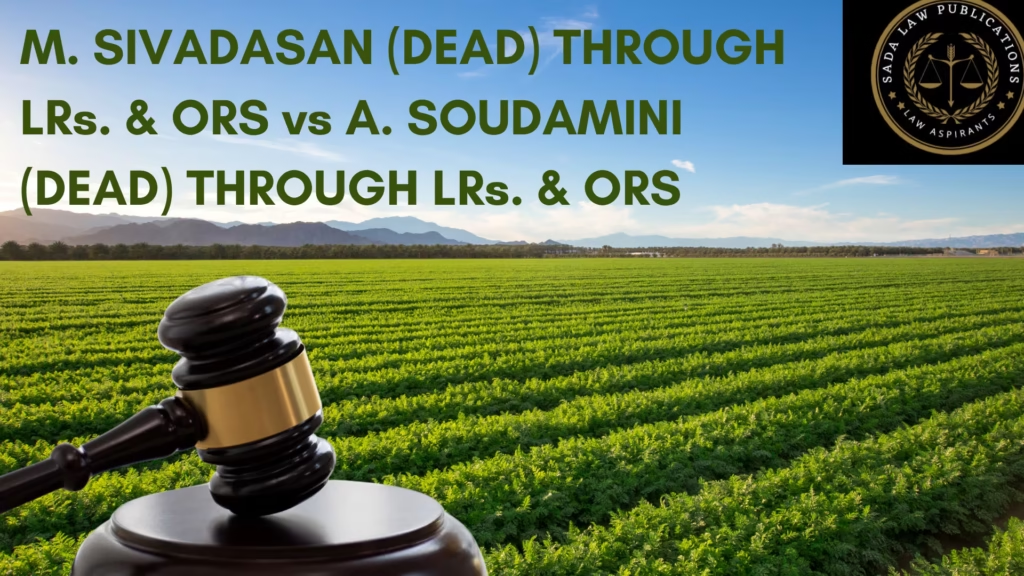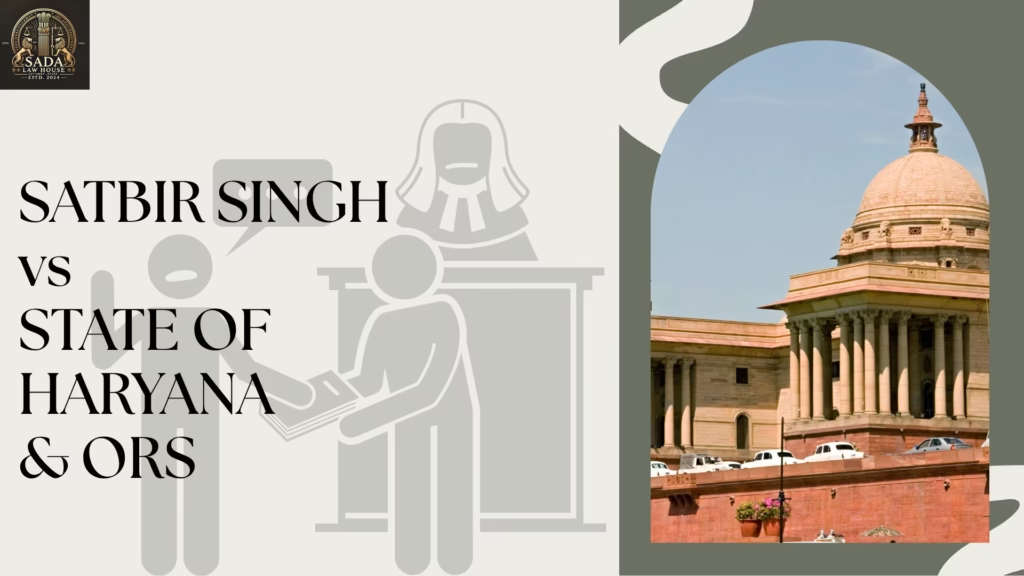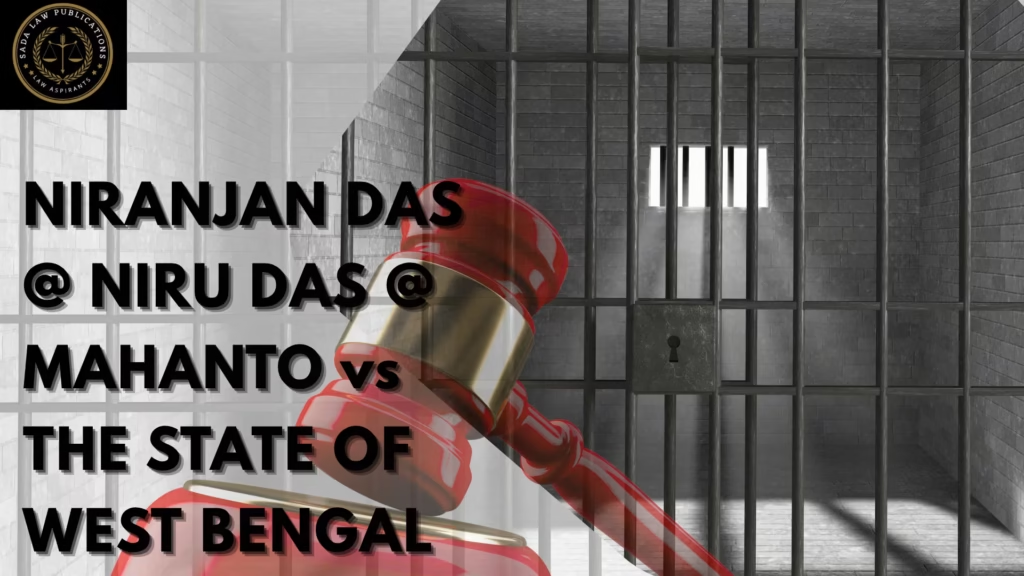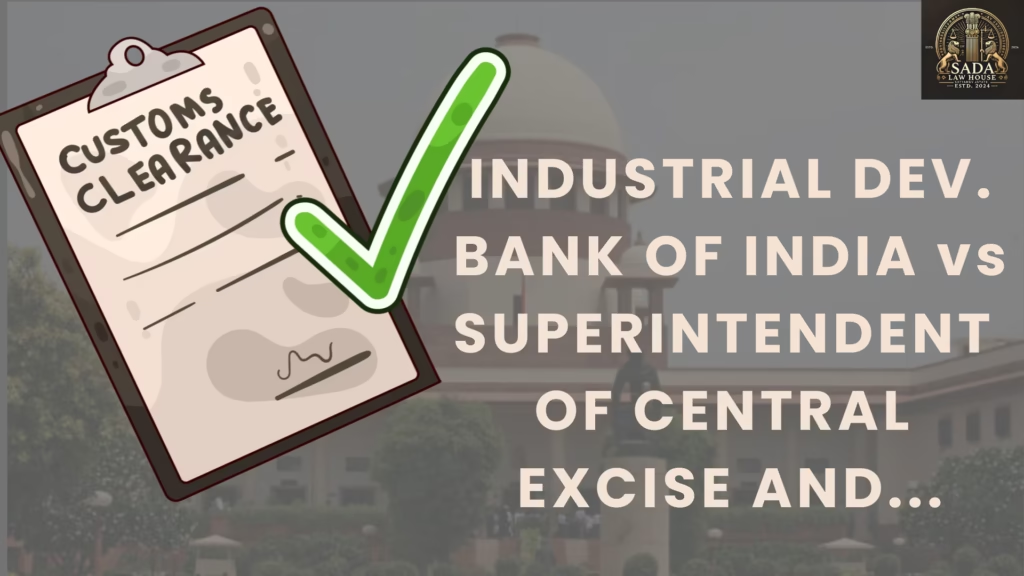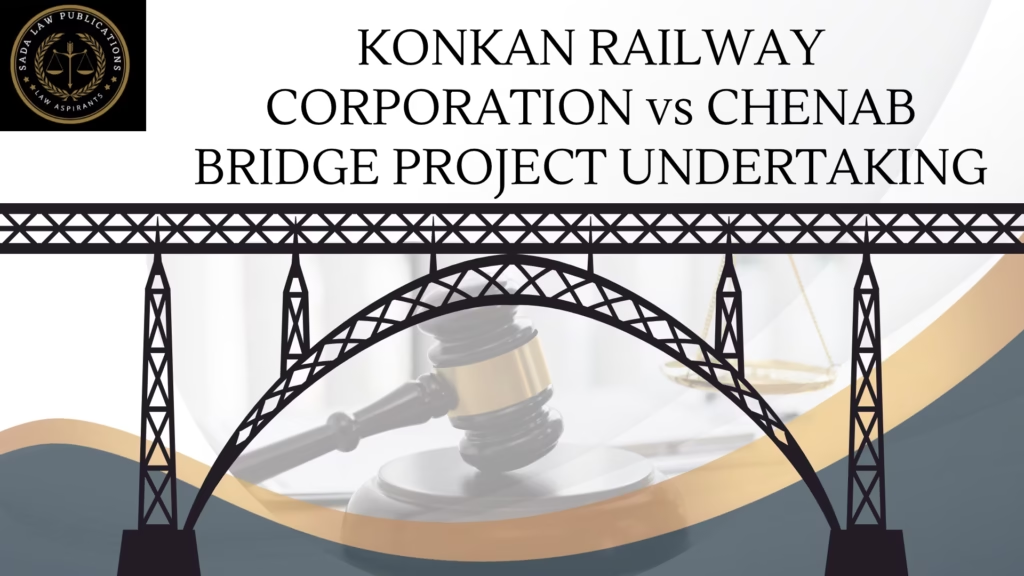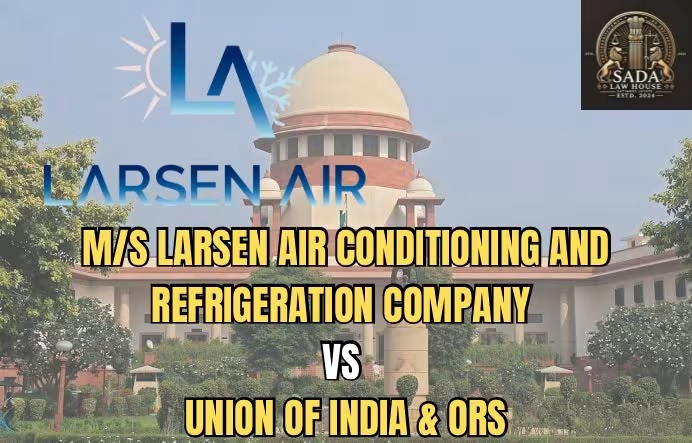Mala Etc. Etc. vs. State of Punjab & Others – Enhancement of Compensation under the Land Acquisition Act, 1894
Trending Today Mala Etc. Etc. vs. State of Punjab & Others – Enhancement of Compensation under the Land Acquisition Act, 1894 The Supreme Court Upholds Limited Judicial Review under the Arbitration Act of 1940 and Restores the Arbitral Award in a Contractor Dispute Criminal Appeal Challenging a Conviction for Murder under Section 302 of the Indian Penal Code M. SIVADASAN (DEAD) THROUGH LRs. & ORS v. A. SOUDAMINI (DEAD) THROUGH LRs. & ORS. (2023) Satbir Singh v. State of Haryana & Others Niranjan Das @ Niru Das @ Mahanto vs The State of West Bengal Industrial Development Bank of India (IDBI) vs Superintendent of Central Excise and Others Konkan Railway Corporation Limited v. Chenab Bridge Project Undertaking (August 17, 2023) Assistant Wild Life Warden & Anr. v. K. K. Moideen & Anr. (August 09, 2023) M/S Larsen Air Conditioning and Refrigeration Company v. Union of India & Ors. Mala Etc. Etc. vs. State of Punjab & Others – Enhancement of Compensation under the Land Acquisition Act, 1894 Reha Bhargav 17 October, 2025 Introduction: The case Mala Etc. Etc. vs. State of Punjab & Others (decided on August 17, 2023) revolves around the issue of fair compensation for land acquisition by the State of Punjab under the Land Acquisition Act, 1894. The appellants, whose agricultural land was taken for a public purpose, contested the compensation fixed by the Land Acquisition Collector, arguing it was below the market value. The Supreme Court examined whether further enhancement was justified beyond the High Court’s decision, which had already increased the compensation and granted statutory benefits. Background: The State of Punjab acquired agricultural land belonging to the appellants. The Land Acquisition Collector initially awarded low compensation. Dissatisfied, the landowners approached the Reference Court, which made a slight enhancement. The High Court then increased the compensation to ₹2,000 per marla and included statutory benefits under Sections 23(1A), 23(2), and 28 of the Act. The appellants, still unsatisfied, appealed to the Supreme Court, seeking a higher valuation. Key Developments: The appellants claimed the High Court failed to consider comparable sale deeds indicating higher market rates. The respondents (State) argued that ₹2,000 per marla was fair and based on proper evidence, as the land was primarily agricultural with limited urban potential. The Supreme Court analyzed both sides’ arguments, focusing on whether the High Court had erred in determining the fair market value. Issues: Was the compensation of ₹2,000 per marla just and fair in light of the prevailing market rate? Were the appellants entitled to further enhancement of compensation? Were statutory benefits under Sections 23(1A), 23(2), and 28 properly granted? Did the High Court correctly assess the land’s potential and sale comparisons? Current Status (Judgment): The Supreme Court upheld the High Court’s decision and rejected the appeal. The Court held that: The compensation fixed at ₹2,000 per marla was reasonable and evidence-based. The land was primarily agricultural with limited developmental prospects at the time of acquisition. Statutory benefits under the Land Acquisition Act were correctly applied. No further enhancement was warranted as the High Court’s valuation aligned with legal precedents and market evidence. Conclusion: The Supreme Court reaffirmed the High Court’s findings, ruling that the compensation of ₹2,000 per marla was fair, equitable, and in accordance with law. The Court highlighted the importance of balancing the rights of landowners with public interest while ensuring just compensation under the Land Acquisition Act. The appeal was dismissed, confirming the High Court’s judgment in full. Leave a Reply Cancel Reply Logged in as Sada Law. Edit your profile. Log out? Required fields are marked * Message* Case Laws Mala Etc. Etc. vs. State of Punjab & Others – Enhancement of Compensation under the Land Acquisition Act, 1894 Sada Law • October 17, 2025 • Case law • No Comments The Supreme Court Upholds Limited Judicial Review under the Arbitration Act of 1940 and Restores the Arbitral Award in a Contractor Dispute Sada Law • October 17, 2025 • Case law • No Comments Criminal Appeal Challenging a Conviction for Murder under Section 302 of the Indian Penal Code Sada Law • October 17, 2025 • Case law • No Comments 1 2 3 … 5 Next »

